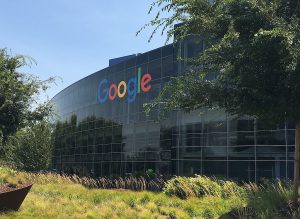Google has banned political ads in Singapore ahead of elections, an opposition party said Wednesday, sparking accusations the tech giant was “kowtowing” to the tightly-controlled city’s government.
The ban was imposed under controversial new rules aimed at fighting disinformation in the city-state, which critics fear could be used to stifle dissent.
General elections are widely expected within months and weak opposition parties are relying on social media to reach voters in a country where the mainstream media typically backs the long-ruling government.
But the Singapore Democratic Party (SDP), a key opposition group, said that Google had refused their request to buy ads on the site.
Google had cited the new regulations, which prohibit adverts seeking to influence public opinion, according to correspondence between the US firm and the party posted on the SDP website by chairman Paul Tambyah.
“We have been highly dependent on social media and the internet to get our message across to the people of Singapore,” Tambyah said in a letter to Google chief executive Sundar Pichai.
“This new policy is alarming and very disappointing.”
Ted Osius, Google’s vice president for government affairs and public policy, replied that banning political ads “was not an easy decision to make”, according to a copy of his letter posted by the party.
Google, which has its regional headquarters in Singapore, did not immediately respond to requests for comment.

Tambyah’s party does not currently hold any seats in parliament, and the city’s fractious opposition groups are not seen as a threat to the long-ruling People’s Action Party.
Brad Bowyer, a member of another opposition group, the Progress Singapore Party, told AFP it was “very disheartening when the national media is controlled and now social media is kowtowing”.
Bowyer had to put up a correction by one of his Facebook posts last week after authorities ordered him to under the new law.
At the weekend, Facebook posted a correction by a post in Singapore for the first time after receiving an official request.
© Agence France-Presse

